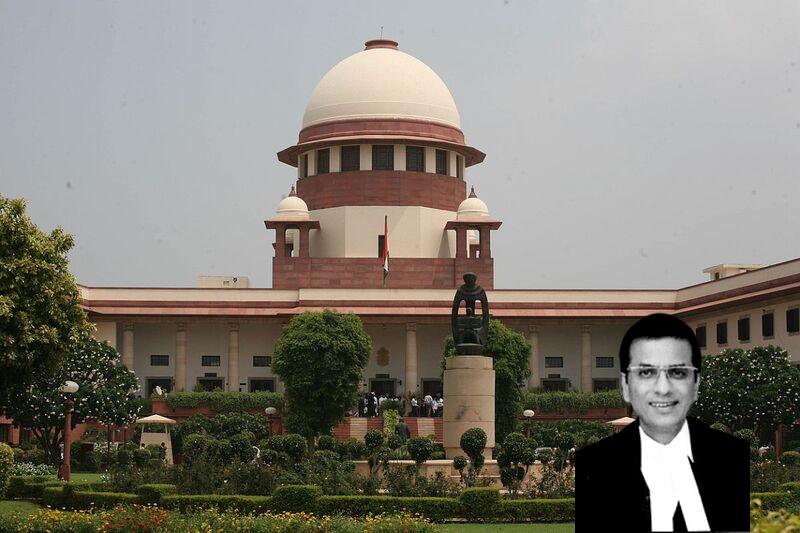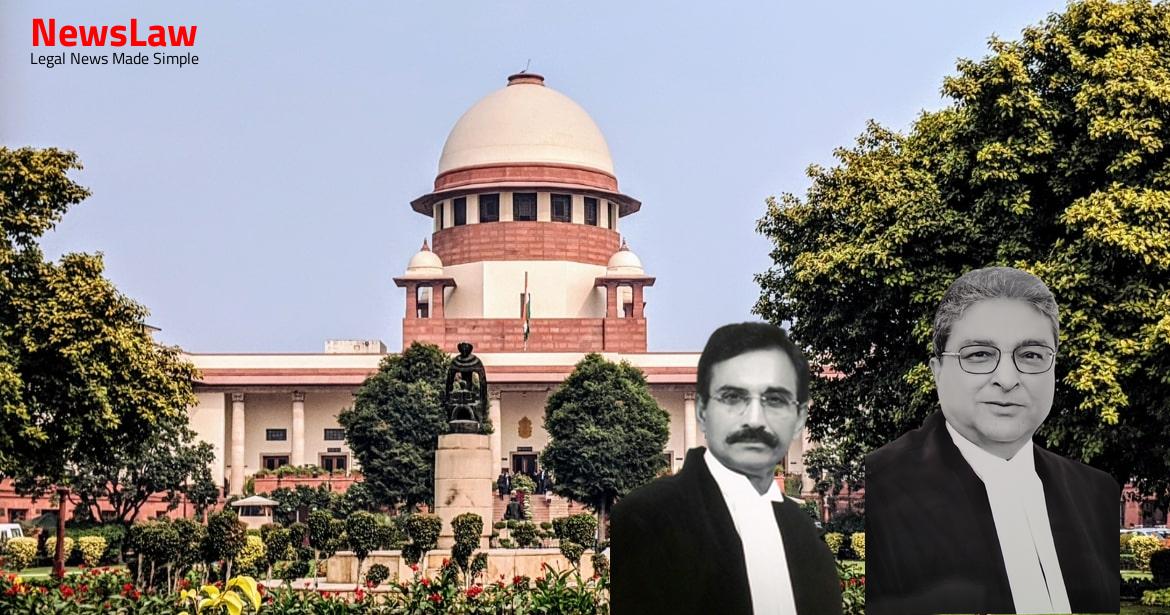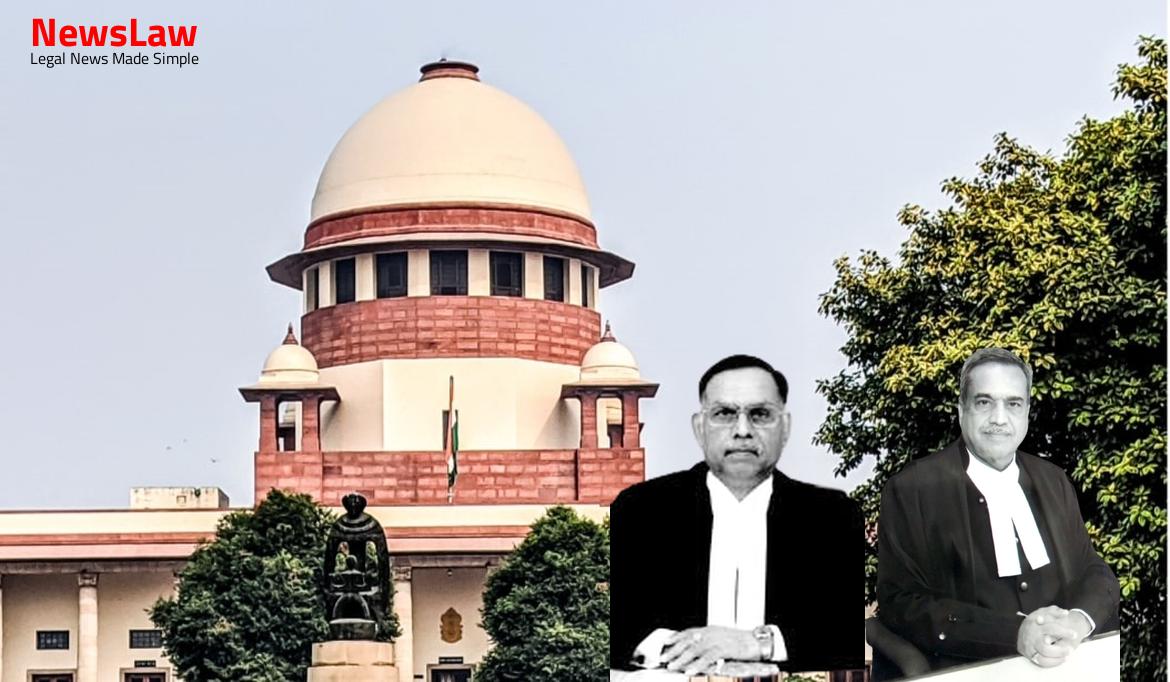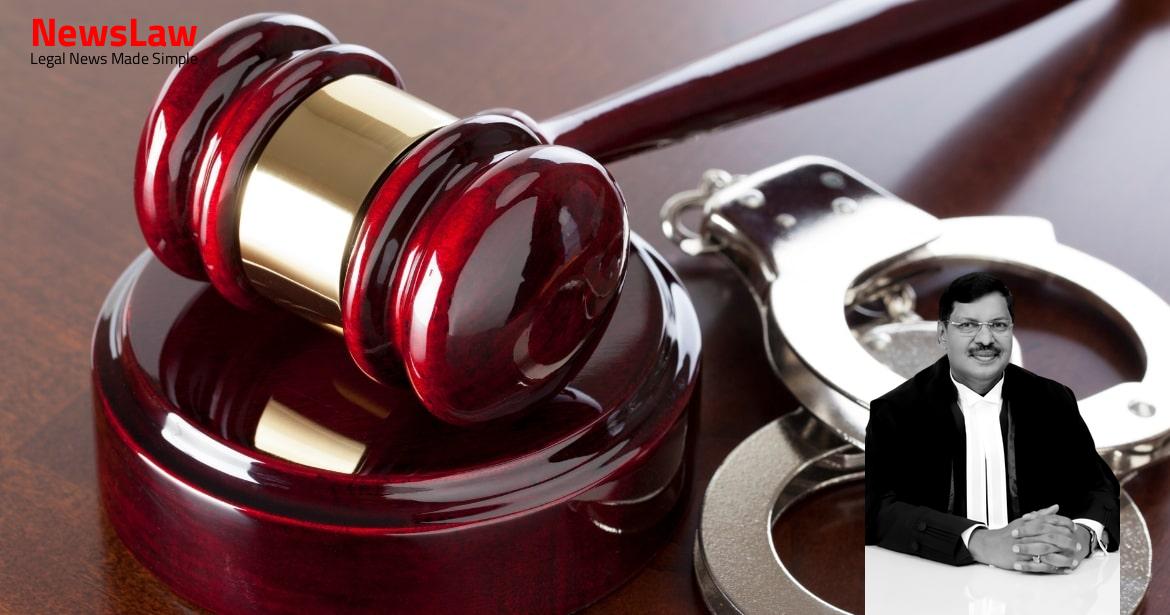It assails a short five-line order of a learned Judge of the High Court of Delhi (“learned Judge”, hereafter) dated 10 December 2010. Appellant had approached the High Court of Delhi taking exception to an order dated 25 March 2010 passed by the Additional Chief Metropolitan Magistrate (SE), New Delhi (“Trial Court”, hereafter) on a complaint lodged under section 200, Cr. Lorenzo Boninsegna (accused no.3) were “jointly and severally responsible for writing, sending, publishing the above said letters containing malicious and defamatory statements and imputation against the complainant” and consequently summoned the three accused for offences under sections 500/107/34, Indian Penal Code (“IPC”, hereafter). Ltd, was the Indian associate of one Rosenbauer International AG (“Rosenbauer”, hereafter), another bidder in the aforementioned tender process. These letters allege that the complainant, through illegal and wrongful methods, persuaded AAI to award the tender to Rosenbauer.
On 30 April 2009, the complainant addressed a legal notice to the appellant and Aggarwal inter alia alleging that the contents of the aforementioned four letters of complaint given to the concerned authorities were defamatory. The challenge by the appellant to the summoning order was spurned by the High Court vide the impugned order. Viswanathan argued that the High Court committed grave miscarriage of justice in dismissing the petition by a cryptic order. The impugned order of the learned Judge omitted to consider that the complaint did not disclose any oral or written words, spoken or written by the appellant, or sign or visible representation made by it; and, in the absence of disclosure of any imputation made by the appellant, the key ingredient of the offence of defamation did not exist. There has been a gross failure of justice in that the learned Judge ought to have corrected the manifest error committed by the Trial Court in issuing process against the accused without the Trial Court considering whether any of the exceptions to section 499, IPC was applicable on facts and in the circumstances of the present case.
Our notice was first invited to the fact that Aggarwal had independently challenged the summoning order before the High Court of Delhi by presenting a petition under section 482, Cr. Taneja contended that the learned Judge on 10 December 2010 had considered the petitions of Aggarwal and the appellant, one after the other; and, although it is true that the learned Judge while dismissing the petition of the appellant dealt with the point 9 that a company could be proceeded against in view of Iridium India Telecom Ltd. Referring to the writ petition of the appellant presented before the High Court of Delhi, he pointed out that the self-same letters of complaint issued by Aggarwal were made part of such petition while challenging the appellant’s 10 disqualification in course of the tender process; and, if indeed, such letters were issued without knowledge and consent of the appellant, it defies logic as to why they were made part of the writ petition in the first place where the appellant was arrayed as the writ petitioner.
Taneja that it is not open to the Courts to quash a complaint based on additional material placed by the accused which is not part of the record of proceedings before the court below. Whether, while considering a private complaint alleging defamation, the Magistrate before summoning the accused ought to confine himself to the allegations forming part of the petition only or he may, applying his judicial mind to the exceptions to section 499, IPC, dismiss the complaint holding that the facts alleged do not make out a case of defamation? A survey of the decisions of this Court which were cited and those mentioned in the cited decisions as well as some other decisions, which we had the occasion to read and consider while preparing this judgment, would provide guidance and pave the way for us to decide the fate of this appeal. Before concluding the discussion, it is to be stated that the trial Magistrate has given an additional reason for dismissing the complaint. It is needless to state that the question of applicability of the Exceptions to Section 499 IPC, as well as all other defences that may be available to the appellants will have to be gone into during the trial of the complaint.” (underlining ours, for emphasis) 18. The order recorded by the High Court quashing the prosecution under Section 482 of the Code is wholly perverse and has resulted in manifest miscarriage of justice. *** It is for the respondent to plead that he was protected under Ninth Exception to Section 499 of the Penal Code.
Was it the result of any ill will or malice which the author bore towards the political group to which the complainant belonged? These and several other questions may arise for consideration, depending on the stand taken by the accused at the trial and how the complainant proposes to demolish the defence. Certain allegations came to be made but whether these allegations do constitute defamation of the Marwari community as a business class and whether the appellant had intention to cite as an instance of general feeling among the community and whether the context in which the said statement came to be made, as is sought to be argued by the learned Senior Counsel for the appellant, are all matters to be considered by the learned Magistrate at a later stage. The Magistrate prima facie came to the conclusion that the allegations might come within the definition of ‘defamation’ under Section 499 IPC and could be taken cognizance of. Kittu Alias Krishnamoorthy, the respondent filed a private complaint against the appellant for commission of the offence of defamation under section 500, IPC. It is submitted by the learned Senior Counsel that Exceptions to Section 499 are required to be considered at the time of summoning of the accused but as the same is not conceived in the provision, it is unconstitutional. Rumugam that for the purpose of bringing any case within the purview of the Eighth and the Ninth Exceptions appended to Section 499 IPC, it would be necessary for the person who pleads the Exception to prove it. The 19 facts, the relevant issue and the finding – all are captured in paragraph 7, which we reproduce hereunder: “The next question that arises for consideration is whether reading the complaint and the report of the Treasury Officer which was obtained pursuant to the Order of the Magistrate under sub-section (1) of Section 201, can it be said that a prima facie case exists for trial or Exception 8 to Section 499 clearly applies and consequently in such a case, calling upon the accused to face trial would be a travesty of justice. The report of the Treasury Officer clearly indicates that pursuant to the report made by the accused persons against the complainant, a departmental enquiry had been initiated and the complainant was found to be guilty. In this view of the matter, requiring the accused persons to face trial or even to approach the Magistrate afresh for reconsideration of the question of issuance of process would 20 not be in the interest of justice. The aforesaid determination makes it clear that on perusal of the allegations levelled in the petition of complaint, the Court was satisfied that no case of defamation had been made out therein and this precisely seems to be the reason why the Court felt that it would not be in the interest of justice to require the accused persons to face trial or even to approach the Magistrate afresh for reconsideration of the question of issuance of process. The decision in Jawaharlal Darda (supra) reveals that the respondent 1 had filed a complaint on 2 February, 1987 in the court of the relevant Magistrate alleging that by publishing a news item in its newspaper ‘ Daily Lokmat’, on 4 February, 1984, the appellant being the then Chief Editor of that daily and 4 (four) others associated with the newspaper in one capacity or the other, had committed offences punishable under sections 499, 500, 501 and 502 read with section, 34 IPC. The High Court was of the opinion that the Sessions Court misinterpreted the publication. This Court restored the order of the Sessions Court holding as follows: “4. If the accused bona fide believing the version of the Minister to be true published the report in good faith it cannot be said that they intended to harm the reputation of the complainant. Thus the facts and circumstances of the case disclose that the news items were published for public good. The decision too appears to have been rendered by this Court considering the special facts and circumstances. The question, in paragraph 18, reads as follows: “We now turn to the question: whether the benefit of any of the exceptions to Section 499 of the IPC can be availed of and on the strength of such exception, the proceedings can be quashed at the stage when an application moved under Section 482 of the Code is considered?” After quoting paragraphs 5 and 7 from the decisions in Jawaharlal Darda (supra) and Rajendra Kumar Sitaram Pande (supra), respectively, and conscious of the legal position, the Court cautiously proceeded to hold as follows: “21. However, the approach adopted seems to have persuaded the Court in Aroon Purie (supra) to proceed to make the observation, highlighted above, which has opened up an arena of debate as to whether, the benefit of an Exception to section 499, IPC could be afforded at the stage of trial only or whether, if the facts of a given case so justify, such 25 benefit can be extended and proceedings quashed at the stage a petition under section 482, Cr. Prokash Chandra Bose, being decisions rendered by Benches of 3 (three) and 4 (four) Hon’ble Judges, respectively, the remaining three are decisions of not too distant an origin, viz. Sun Group rendered by Benches of 2 (two) Hon’ble Judges of this Court. The Bombay High Court set aside the order of dismissal and directed the Presidency Magistrate to issue process against the appellant and deal with the case in accordance with law, on the ground that though Sitaram’s death was indisputable, the accused would have to establish the necessary ingredients of the right of private defence as laid down in section 96 and onwards of the Indian Penal Code; that there was nothing in any of the sections in Chapter XVI to show that such an exception can be held to be established from the mere report of the police; that there is nothing in sections 202 or 203 of the Cr. Must enquiring the Magistrate, as a matter of law, issue process in such a case and leave the person complained against to establish his plea of self-defence at the trial? 32.2 While setting aside the impugned judgment and restoring the order of the Magistrate, this Court held that the Bombay High Court was in error in holding in such case that as a matter of law, it was not open to the Presidency Magistrate to conclude that no offence had been made out and there was no sufficient ground for proceeding further on the complaint on the materials before him. In arriving at his judgment he is not fettered in any way except by judicial considerations; he is not bound to accept what the Inquiring Officer says, nor is he precluded from accepting a plea based on an exception, provided always there are satisfactory and reliable materials on which he can base his judgment as to whether there is sufficient ground for proceeding on the complaint or not. Profitable reference can next be made to the decision in Chandra Deo Singh (supra), where a Bench of 4 (four) Hon’ble Judges had the occasion to consider a challenge to a judgment of the High 29 Court at Calcutta. In his first report, he opined that a prima facie case to proceed against the three accused persons had been made out whereas, in his second report, he opined that no prima facie case to proceed against the first respondent had been made out.
It was held that upon a finding of a prima facie case, the Magistrate was bound to issue process despite the charged person having a defence. It would follow from this, therefore, that it would not be open to the Magistrate to put any question to witnesses at the instance of the person named as accused but against whom process has not been issued; nor can he examine any witnesses at the instance of such a person. Permitting an accused person to intervene during the enquiry would frustrate its very object and that is why the legislature has made no specific provision permitting an accused person to take part in an enquiry. In order to come to this conclusion, he is entitled to consider the evidence taken by him or recorded in an enquiry under Section 202, or statements made in an investigation under that section, as the case may be. All the greater reason, therefore, that where there is prima facie evidence, even though an accused may have a defence like that in the present case that the offence is committed by some other person or persons, the matter has to be left to be decided by the appropriate forum at the appropriate stage and issue of process cannot be refused.
As noted above, in Vadilal Panchal (supra) the order of the Presidency Magistrate dismissing the complaint on the ground that the accused had exercised his right of self-defence was restored upon setting aside the order of the High Court of Bombay; whereas, in Chandra Deo Singh (supra), the order of the Sub-Divisional Magistrate directing further inquiry was restored upon setting aside the order of the High Court at Calcutta. The appellants pleaded that the aforesaid notice was published in public interest, and thus it was covered under the Tenth Exception to section 499, IPC. This Court held that this was an erroneous approach because the 34 Magistrate ought to have applied his mind to the complaint and determined whether the statement was prima facie defamatory, before issuing summons to the accused. This Court emphasised the need for application of judicial mind by the Judicial Magistrate, while noting the consideration of the Fourth Exception to Section 499, IPC at the stage of issuance of process. The scope of enquiry under Section 202 CrPC is, therefore, limited to the ascertainment of truth or falsehood of the allegations made in the complaint: ( i ) on the materials placed by the complainant before the court; ( ii ) for the limited purpose of finding out whether a prima facie case for issue of process has been made out; and ( iii ) for deciding the question purely from the point of view of the complainant without at all adverting to any defence that the accused may have.” (underlining ours, for emphasis) 39. While there are several decisions where this Court has consistently laid down the law in one particular line that it is for the Magistrate to consider the Exceptions to section 499, IPC for extension of benefit thereof at the trial when a defence is pleaded by the party seeking to avail the same and upon the burden of proof being 36 discharged by him and that such Magistrate while deciding the question purely from the point of view of the complainant may not advert to the possible defence of the accused at the time of exercising power under section 202, the other line of decisions seem to proceed on the premise that there is no bar in considering the Exceptions if the accused, even without appearing before the Magistrate in response to the summoning order, lays a challenge thereto under section 482, Cr.
Case Title: M/S IVECO MAGIRUS BRANDSCHUTZTECHNIK GMBH Vs. NIRMAL KISHORE BHARTIYA & ANR.
Case Number: CRIMINAL APPEAL NO. 1959 OF 2012 (2023INSC880)



